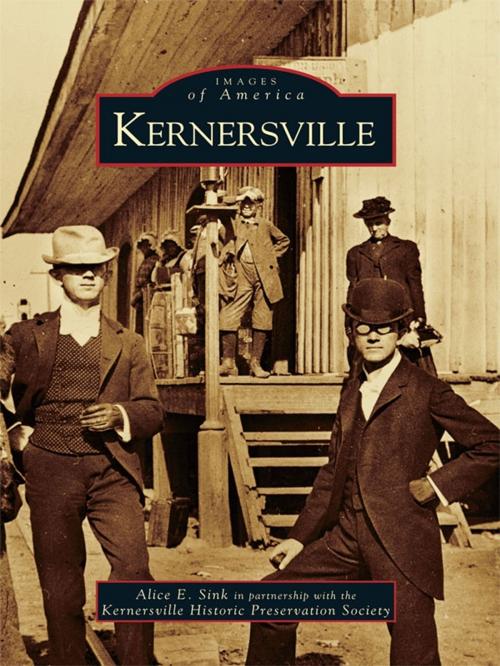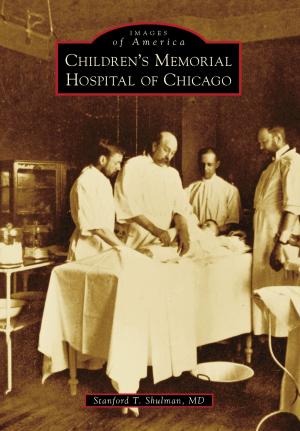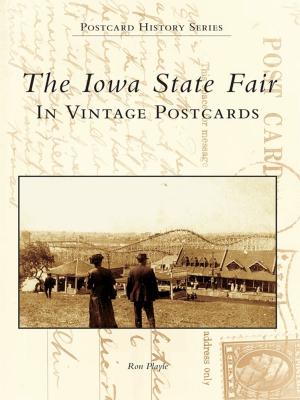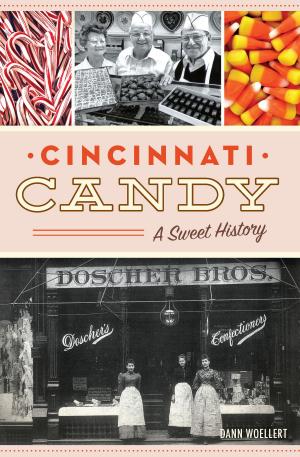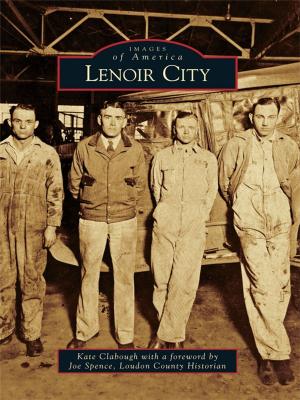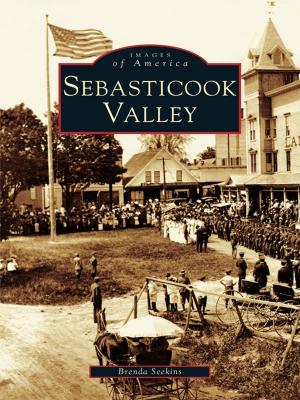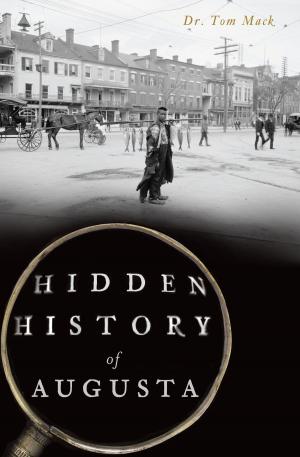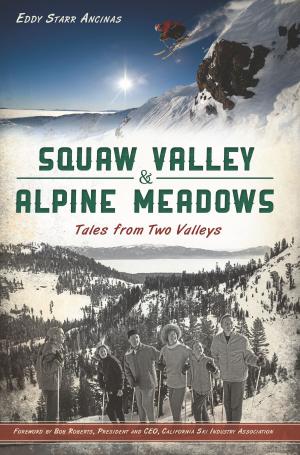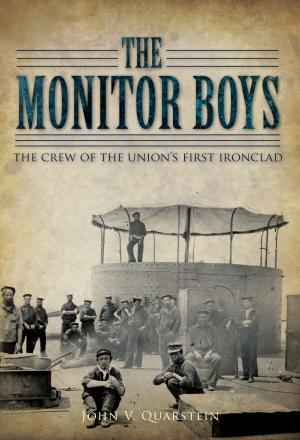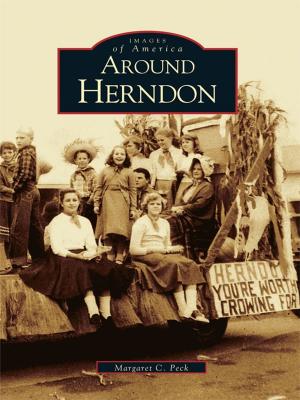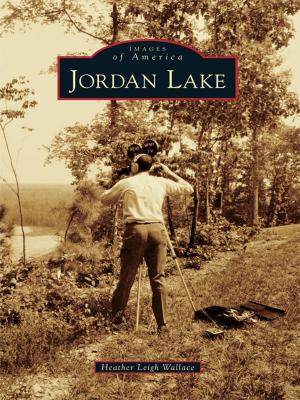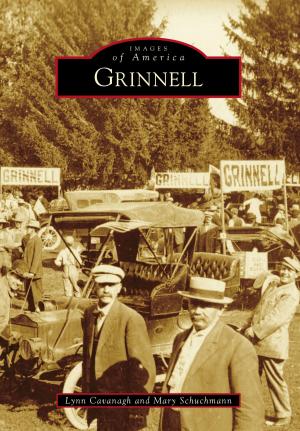| Author: | Alice E. Sink, Kernersville Historic Preservation Society | ISBN: | 9781439617090 |
| Publisher: | Arcadia Publishing Inc. | Publication: | August 17, 2005 |
| Imprint: | Arcadia Publishing | Language: | English |
| Author: | Alice E. Sink, Kernersville Historic Preservation Society |
| ISBN: | 9781439617090 |
| Publisher: | Arcadia Publishing Inc. |
| Publication: | August 17, 2005 |
| Imprint: | Arcadia Publishing |
| Language: | English |
Native Americans first inhabited the eastern Forsyth County area, a natural watershed and source of six rivers and creeks. About 1756, Irishman Caleb Story settled here on 400 acres of wooded land. Years later, Story sold his land to David Morrow for a purported four gallons of rum. About 1771, William Dobson purchased the original acreage and additional tracts and built an inn near what is now Mountain Street and Main Street. He named this junction Dobson�s
Crossroads. On June 2, 1791, President George Washington ate breakfast at Dobson�s Tavern. On November 14, 1817, German-born Joseph Kerner (also spelled K�rner) purchased the land and renamed the area Kerner�s Crossroads. This begins the story of Kernersville. The same roads, still graced with historic churches, stores, and homes, crisscross at the heart of this community. K�rner�s Folly, which contains 22 rooms, housed the first private little theater in America.
Crossroads. On June 2, 1791, President George Washington ate breakfast at Dobson�s Tavern. On November 14, 1817, German-born Joseph Kerner (also spelled K�rner) purchased the land and renamed the area Kerner�s Crossroads. This begins the story of Kernersville. The same roads, still graced with historic churches, stores, and homes, crisscross at the heart of this community. K�rner�s Folly, which contains 22 rooms, housed the first private little theater in America.
Native Americans first inhabited the eastern Forsyth County area, a natural watershed and source of six rivers and creeks. About 1756, Irishman Caleb Story settled here on 400 acres of wooded land. Years later, Story sold his land to David Morrow for a purported four gallons of rum. About 1771, William Dobson purchased the original acreage and additional tracts and built an inn near what is now Mountain Street and Main Street. He named this junction Dobson�s
Crossroads. On June 2, 1791, President George Washington ate breakfast at Dobson�s Tavern. On November 14, 1817, German-born Joseph Kerner (also spelled K�rner) purchased the land and renamed the area Kerner�s Crossroads. This begins the story of Kernersville. The same roads, still graced with historic churches, stores, and homes, crisscross at the heart of this community. K�rner�s Folly, which contains 22 rooms, housed the first private little theater in America.
Crossroads. On June 2, 1791, President George Washington ate breakfast at Dobson�s Tavern. On November 14, 1817, German-born Joseph Kerner (also spelled K�rner) purchased the land and renamed the area Kerner�s Crossroads. This begins the story of Kernersville. The same roads, still graced with historic churches, stores, and homes, crisscross at the heart of this community. K�rner�s Folly, which contains 22 rooms, housed the first private little theater in America.
